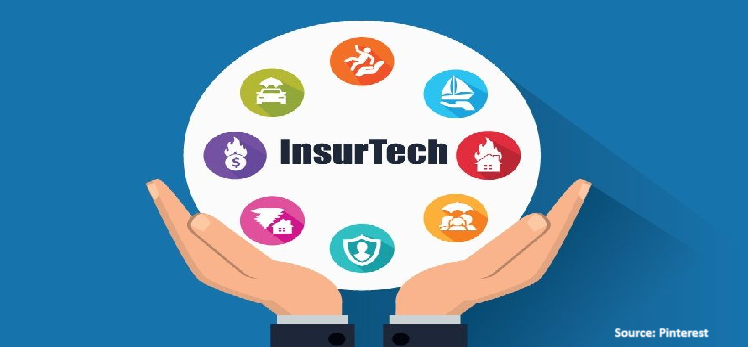
France Travel Insurance Market by Age (Millennials, Generation X, and Baby Boomers), by Income Level (Low-income travelers, Middle-income travelers and High-Income Travelers), by Coverage (Medical Coverage, Trip Cancellation Coverage, Baggage and Personal Belongings Coverage, Accidental Death and Dismemberment (AD&D) Coverage), by Days of Coverage (Short-Trip Insurance, Standard Trip Insurance, Extended Trip Insurance and Multi-Trip Insurance) by End User (Pilgrim Travelers, Education Travelers, Business Travelers and Family Travelers) by Distributional Channel (Insurance Companies, Banks, Airlines, Online Platforms, Insurance Aggregators & Comparison Websites, and Travel Agents & Tour Operators) – Opportunity Analysis and Industry Forecast, 2024–2030
Industry: BFSI | Publish Date: 20-Apr-2024 | No of Pages: 123 | No. of Tables: 90 | No. of Figures: 55 | Format: PDF | Report Code : N/A
Market Overview
The France Travel Insurance Market size was valued at USD 1.08 billion in 2023 and is predicted to reach USD 2.06 billion by 2030, with a CAGR of 8.8% from 2024 to 2030. Travel insurance serves as a specialized form of insurance aimed at providing protection and coverage to travelers against a wide array of potential risks and unforeseen circumstances that may arise before or during their journeys. It plays a vital role in mitigating the financial impact of various travel-related emergencies, disruptions, and inconveniences, thereby offering travelers a sense of security and peace of mind throughout their trips. One of its key benefits lies in its ability to offer financial reimbursement and assistance in the event of trip cancellations or interruptions. This coverage encompasses unforeseen situations such as illness, injury, or emergencies, enabling travelers to recover non-refundable expenses associated with flights, accommodations, and other pre-paid arrangements.
Increasing Marketing and Awareness of Travel Insurance Drives the France Industry
The progression of the travel insurance industry in the country hinges on the amplification of marketing endeavors and the augmentation of awareness. Through strategic marketing campaigns, insurance providers can effectively convey the indispensability of travel insurance in mitigating risks and providing assurance to travelers. By spotlighting real-life scenarios, testimonials, and case studies, insurers can enlighten consumers about the potential financial ramifications of unforeseen events such as trip cancellations, medical emergencies, or misplaced belongings.
Moreover, by leveraging digital marketing channels, social media platforms, and collaborations with travel agencies or airlines, insurers can extend their reach and bolster brand recognition. As familiarity with travel insurance proliferates, more travelers recognize mind to travelers. By showcasing real-life scenarios, endorsements, and case studies, insurers can educate consumers about the potential financial consequences of unforeseen events such as trip cancellations, medical emergencies, or lost luggage. Moreover, by leveraging digital marketing channels, social media platforms, and partnerships with travel agencies or airlines, insurers can reach a broader audience and increase brand visibility. As awareness of travel insurance increases, more travelers understand its value proposition and are likely to purchase coverage for their trips, thereby expanding the customer base and driving industry growth.
Additionally, compliance with regulatory requirements in specific destinations and the inclusion of travel insurance in travel packages or booking platforms further contribute to the adoption of insurance products. Ultimately, by effectively marketing and increasing awareness of travel insurance, insurers can stimulate demand, improve customer engagement, and drive the growth of the travel insurance industry.
The Growing Number of Online Platforms for Travel Insurance Drives the France Industry
The expansion of online platforms specializing in travel insurance has fundamentally altered the landscape of the travel insurance industry in the country, enhancing accessibility and convenience for consumers. These platforms provide a diverse range of options, empowering travelers to effortlessly compare policies and select the most appropriate one based on their preferences and financial circumstances. Additionally, the online availability of these platforms simplifies the purchasing process, eliminating the need for cumbersome paperwork or visits to insurance providers in person. Consequently, the growing ubiquity of online platforms has heightened competition within the industry, prompting insurance companies to innovate and offer more competitive rates and comprehensive coverage options to capture customers in the digital domain.
Perceived High Costs Associated with Travel Insurance Hinder the France Market Growth
The perceived high expenses associated with travel insurance can serve as a significant hindrance to market expansion in the country. Many travelers may view insurance premiums as an additional financial burden, particularly when compared to the overall expenses of their trip. This perception might lead individuals to opt out of purchasing coverage, especially for shorter or less expensive trips, despite the potential financial risks involved. Moreover, the complexity of insurance pricing structures and the lack of transparency in coverage terms can intensify concerns about value for money. To tackle this challenge, insurance providers need to prioritize educating consumers about the benefits of travel insurance, emphasizing its role in mitigating financial risks associated with unforeseen events during travel. Additionally, offering competitive pricing and customizable policies tailored to different travel needs can help alleviate concerns about cost and encourage broader adoption of travel insurance, thus driving market growth.
Predictive Analytics for Risk Assessment Creates Ample Opportunity for the France Market Growth
The integration of predictive analytics for risk assessment offers abundant opportunities for market growth within the travel insurance industry in the country. By harnessing advanced algorithms and data analytics techniques, insurers can analyze vast amounts of historical and real-time data to accurately assess risks associated with travel, such as medical emergencies, trip cancellations, and natural disasters. This proactive approach enables insurers to offer more personalized and precisely tailored insurance products to customers, based on their unique travel profiles and risk factors.
Additionally, predictive analytics can enhance underwriting processes, enabling insurers to price policies more competitively and accurately while minimizing the likelihood of adverse selection. Furthermore, by leveraging predictive insights, insurers can develop proactive risk mitigation strategies and preventive measures, ultimately improving customer satisfaction and loyalty. Overall, the integration of predictive analytics for risk assessment creates a pathway for market growth by fostering product innovation, improving customer experience, and enhancing operational efficiency within the travel insurance industry.
Competitive Landscape
Several market players operating in the France travel insurance market include Allianz Group, AXA SA, Zurich Insurance Group Limited, American International Group, Inc., Chubb Limited, Aviva PLC, Nationwide, Berkshire Hathaway Speciality Insurance, Travel Insured International, Generali Group and Others.
France Travel Insurance Market Key Segments
By Age
-
Millennials
-
Generation X
-
Baby Boomers
By Income Level
-
Low-income Travelers
-
Middle-income Travelers
-
High-income Travelers
By Coverage
-
Medical Coverage
-
Trip Cancellation Coverage
-
Baggage and Personal Belongings Coverage
-
Accidental Death and Dismemberment (AD&D) Coverage
By Days of Coverage
-
Short-Trip Insurance
-
Standard Trip Insurance
-
Extended Trip Insurance
-
Multi-Trip Insurance
By End User
-
Pilgrim Travelers
-
Education Travelers
-
Business Travelers
-
Family Travelers
By Distributional Channel
-
Insurance Companies
-
Banks
-
Airlines
-
Online Platforms
-
Insurance Aggregators and Comparison Websites
-
Travel Agents and Tour Operators
REPORT SCOPE AND SEGMENTATION:
|
Parameters |
Details |
|
Market Size in 2023 |
USD 1.08 Billion |
|
Revenue Forecast in 2030 |
USD 2.06 Billion |
|
Growth Rate |
CAGR of 8.8% from 2024 to 2030 |
|
Analysis Period |
2023–2030 |
|
Base Year Considered |
2023 |
|
Forecast Period |
2024–2030 |
|
Market Size Estimation |
Billion (USD) |
|
Growth Factors |
|
|
Companies Profiled |
10 |
|
Market Share |
Available for 10 companies |
|
Customization Scope |
Free customization (equivalent up to 80 working hours of analysts) after purchase. Addition or alteration to country, regional, and segment scope. |
|
Pricing and Purchase Options |
Avail customized purchase options to meet your exact research needs. |
KEY PLAYERS
-
Allianz Group
-
AXA SA
-
Zurich Insurance Group Limited
-
American International Group, Inc.
-
Chubb Limited
-
Aviva PLC
-
Nationwide
-
Berkshire Hathaway Speciality Insurance
-
Travel Insured International
-
Generali Group




 Speak to Our Analyst
Speak to Our Analyst






















_Insurance.png)











